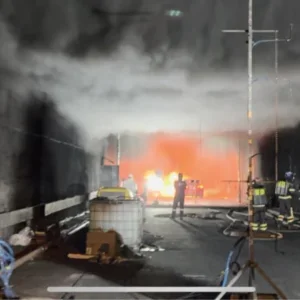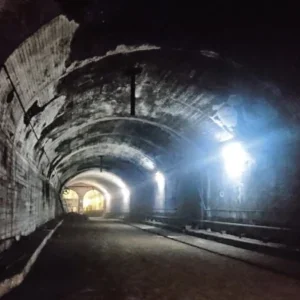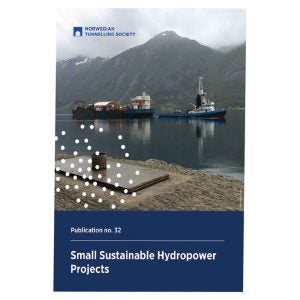I’ve just finished my first year back in the classroom again after 15 years of administration roles in both the U.S. federal government and academia. Returning to the classroom has been hard but exciting. However, I will admit to being disheartened to find that the problems faced by the underground construction profession and industry in the U.S. have only become more serious with time, and the subjects at issue are the same as they were 15 years ago.
We still don’t have education programmes in the United States that produce the technological and business leadership that the tunnelling and underground construction industry needs for a healthy future. But I know that academe can respond effectively if owners and industry leaders can come together and tell us what you need and what you can support.
Our industry has to underpin the future of the sustainable world, particularly as it relates to the mega cities and the critical issues of energy and water. Infrastructure investments will be huge, and our industry needs to be prepared to provide quality and sustainable service provision that the world needs. If we plan now, and well, we will be the resource that is needed to address both small and local problems and also complex and large-scale problems, which engage integrated planning and social equity issues. To do this weneed to mould engineers who are entrepreneurial and savvy in the ways of multi-cultural business, and who have global perspectives and interest in sustainability. In the future, the engineering profession should be known for leadership, not commoditised technology expertise.
Here’s one way to do that. Let’s build an executive management degree for underground construction. Structured similarly to an executive MBA (master of business administration), it would not be a research degree, nor would it be predominantly focused on business, management or engineering. This degree could incorporate technology, finance, policy and planning issues, sustainability, disaster response and more. As most people in the engineering world already have a master’s degree, this could be an executive doctorate of the profession (e.g., engineering, construction), which wouldn’t be confused with the more business management-centred MBA.
Take for example the Doctorate in Economics in International Business from the Stockholm School of Economics in Sweden. Launched in 1976, this programme was heavily endowed by the owners of major Swedish companies. Its objective was to prepare students for a very different business world beginning to emerge where natural resources were limited, customers had global perspectives, and massproduction tied to mass marketing was no longer key to growth. Graduates of this programme went on to become CEOs of major international firms, developed new companies or became professors at noted universities. Its graduates were seen as the most advanced researchers in the field of international business.
Aim an executive level degree in underground construction at engineers who’ve spent several years in a management position, and have experience resolving challenges inherent in the tradition of engineering practice. Include upper level engineers who are looking to move into international leadership roles, and who are ready to tackle the bigger issues that the peoples of the world are facing.
By nature, people who want to solve and simplify problems often self-select to study engineering. But engineering in the future is a profession that must engage the more complex problems. This programme would invite other kinds of people into engineering, and develop those individuals into leaders with the necessary skills to manage future corporate challenges. It would train high-level engineers, planners, technologists and scientists to hold positions of responsibility in production, research and development and management. Participants would gain the global competence and business acumen needed to compete at home and abroad, and so would the industry. We need to approach the bigger, world issues in a more integrated and holistic fashion. We need a place for these individuals to come together and think about the finance, about service provision, risk and resilience, technology, the information systems and the cultural aspects.
Key characteristics of the programme would include cohort operation where participants could enrich one another by sharing their diverse professional, cultural, educational perspectives. They would have the opportunity todiscuss the most current strategic and operational issues of international business with guest seminars by prominent businessleaders. Interaction with globally experience CEOs and senior executives in the classroom and on projects would be an integralpart of the learning concept.
With a programme like this, the underground construction industry could provide the people we need to plan our future. If it doesn’t comeout of our industry it will come outof another industry and we will once again be in the back seat. It’stime for us to be in the front seat and leading the sustainability questions and answers for the future. It is not acceptable for us to stand still. I’m ready to work very hard to deliver an excellent education programme for the industry. Tell me how I can help you. Let’s not be discussing the same problems 10 years from now. Let’s be gauging our progress.
Dr. Priscilla Nelson,






